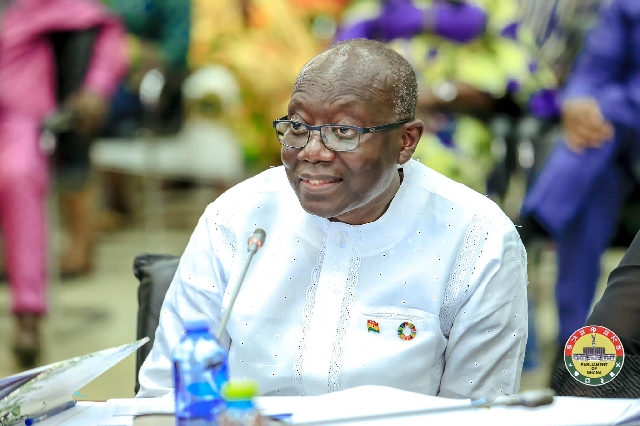Ghana to convert ₵40bn of loans owed BoG into bonds
 Finance Minister Ken Ofori-Atta
Finance Minister Ken Ofori-Atta
Ghana plans to convert an estimated 40 billion cedis ($3.3 billion) of loans owed to the Bank of Ghana into bonds, making the Central Bank the single largest holder of domestic government securities and exposing it to the ongoing debt restructuring process.
According to people familiar with the matter, the bonds will be issued by the finance ministry and will also cover the interest owed to the Bank of Ghana.
There are no details on a timeline for the securitization, but the government is seeking to conclude the restructuring of its public debt this quarter with a view to securing International Monetary Fund (IMF) board approval by the end of March.
The securitized central bank loan will be added to the list of domestic debt under restructuring, according to the sources. The new bonds would bring the central bank into Ghana’s ongoing debt restructuring process, under which the government is asking investors to swap out 137.3 billion cedis ($11.2 billion) worth of local government securities into new notes with less attractive terms. The voluntary exchange has a February 7 deadline.
The restructuring is a key condition for Ghana to qualify for a desperately needed $3 billion bailout from the IMF. However, the IMF has also urged Ghana to stop borrowing from the central bank in order to secure the bailout, as previously reported.
Ghana’s government debt reached 575.7 billion cedis ($47 billion) at the end of November 2022, while its public debt stood at an estimated 105% of its gross domestic product, a figure the country hopes to reduce to 55% by 2028.
Besides restructuring its local bonds, Ghana is also in talks to restructure its bilateral and external debt.
A spokesperson for the central bank declined to comment, while a spokesperson for the finance ministry did not immediately respond to requests for comment.
According to Ghanaian regulations, Section 30 of the Bank of Ghana Act permits the central bank to lend to the government. However, if repayment is “unduly delayed,” the Bank may transfer the debt to the public through the sale of treasury bills. Securitizing the loans would head off the central bank issuing treasury bills to recoup its money.
Ghana has been shut out of international markets after suspending interest payments on $13 billion of Eurobonds.
The country is facing fiscal and economic challenges, and the securitization of central bank loans could help it avoid further difficulties as it seeks to secure a much-needed bailout from the IMF.
Source: Bloomberg
Trending Business

Cedi appreciates significantly in April as global dollar weakness boosts emerging market currencies — MP
02:56
Zoomlion clarifies contract with YEA amid public concerns
00:30
NPA hosts second downstream compliance workshop to strengthen petroleum sector standards
11:23
GFZA CEO tours Tema Free Zone Enterprises to strengthen strategic partnerships
11:05
Finance Minister vows lasting economic stability and lower food prices in meeting with FABAG
08:46
Bawumia’s Gold for Reserve Programme is anchoring the Cedi – Kofi Bentil
13:27
DVLA opens new office in Adentan, CEO expresses gratitude to all stakeholders
08:27
President Mahama delivers on 24-hour economy promise within first 120 days
01:34
Gov't inaugurates task force to oversee establishment of Ghana’s national airline
13:57
NPA boss heaps praise on Finance Minister and BoG for stabilising Cedi, fuel prices
11:18



